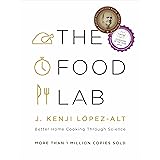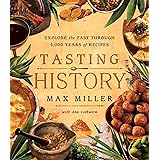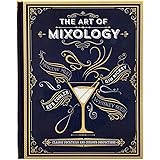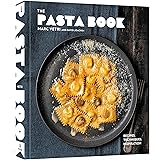A recent survey revealed that around 5% of the global population identifies as vegan, with motivations often spanning a complex spectrum. As highlighted in the accompanying video featuring Dr. Peter Attia, the ‘why’ behind choosing a vegan diet is paramount. It’s crucial to distinguish between adopting a plant-based lifestyle due to ethical objections or personal taste preferences versus doing so based on potentially misinformed health claims. Understanding these underlying reasons helps individuals and health professionals alike in navigating the complexities of optimal nutrition.
Understanding Your Vegan Motivations: Beyond the Plate
For many, the journey to a vegan diet begins with a deep-seated conviction. This conviction often stems from a profound connection to animal welfare or an ethical stance against the industrial practices of animal agriculture. Other common drivers include environmental concerns, seeking health improvements, or simply a disinterest in meat and animal products.
-
Ethical Veganism: A Moral Compass for Dietary Choices
Firstly, if your veganism is rooted in ethical considerations, such as a strong aversion to animal cruelty or the belief that animals have a right to live free from exploitation, this forms a deeply personal and often unshakable foundation. This perspective extends beyond food to encompass clothing, cosmetics, and other products that involve animal-derived components. For these individuals, the dietary choice is a direct reflection of their values. Building a healthy, sustainable vegan diet then becomes a practical challenge to overcome, focusing on nutrient adequacy while adhering to these moral principles. This type of motivation is generally well-understood and respected, focusing on finding “ways to work around” dietary restrictions, as Dr. Attia notes.
-
Environmental Veganism: Eating for the Planet
Secondly, a significant and growing number of individuals adopt a vegan or predominantly plant-based diet due to environmental concerns. The impact of animal agriculture on climate change, deforestation, water usage, and pollution is well-documented. Choosing plant-based options is seen as a direct way to reduce one’s ecological footprint. This motivation, while distinct from direct animal ethics, often overlaps with a broader sense of responsibility and a desire for a more sustainable future. For individuals driven by environmental factors, the focus often shifts to locally sourced, seasonal plant foods to maximize their positive impact.
-
Health-Focused Veganism: Separating Fact from Fiction
Thirdly, and perhaps the most contentious area, is the adoption of a vegan diet purely for perceived health benefits, particularly when based on the misconception that “eating animal products can’t be healthy.” This is where careful education becomes critical. Dr. Attia explicitly states this claim is “patently false.” While a well-planned vegan diet can indeed be incredibly healthy, rich in fiber, vitamins, and antioxidants, it’s not inherently superior to other balanced diets that may include animal products. Moreover, a poorly planned vegan diet, loaded with processed foods and lacking essential nutrients, can be detrimental to health.
The key insight here is that the healthfulness of a diet lies in its overall composition and nutritional density, not simply the absence or presence of animal products. Both animal and plant foods offer unique and vital nutrients.
Navigating the Nutritional Landscape of a Plant-Based Diet
Transitioning to or maintaining a healthy vegan diet requires a conscious effort to ensure adequate intake of all essential nutrients. While plants offer an abundance of vitamins, minerals, and phytonutrients, certain nutrients commonly found in animal products require careful consideration in a vegan eating plan.
Key Nutrients for Vegan Diets and How to Optimize Intake
Ensuring a balanced vegan diet involves strategic food choices and, at times, supplementation. Here are some critical nutrients and how to ensure you’re getting enough:
- Vitamin B12: This vitamin is primarily found in animal products. Vegan sources are limited to fortified foods (plant milks, cereals, nutritional yeast) and supplements. B12 supplementation is generally recommended for all vegans.
- Iron: Plant-based iron (non-heme iron) is less bioavailable than iron from animal sources. Increase absorption by consuming iron-rich plant foods (lentils, beans, spinach, fortified cereals) with vitamin C sources (citrus fruits, bell peppers).
- Omega-3 Fatty Acids: While ALA (alpha-linolenic acid) is found in flaxseeds, chia seeds, and walnuts, converting it to the essential EPA and DHA is inefficient for some. Algae-based supplements are a direct vegan source of EPA and DHA.
- Calcium: Abundant in fortified plant milks, tofu set with calcium, leafy greens (kale, collard greens), and fortified orange juice.
- Vitamin D: Sun exposure is a primary source, but dietary intake is also important. Fortified foods and D2 or vegan D3 supplements (derived from lichen) are crucial, especially in regions with limited sunlight.
- Iodine: Seaweed (in moderation), iodized salt, and some fortified foods provide iodine.
- Zinc: Found in legumes, nuts, seeds, and whole grains. Soaking, sprouting, and fermenting can improve zinc absorption from these foods.
- Protein: A well-planned vegan diet easily meets protein requirements with diverse sources like legumes, tofu, tempeh, seitan, nuts, seeds, and whole grains. Combining various plant proteins throughout the day ensures all essential amino acids are consumed.
Crafting a Nutrient-Dense Plant-Based Lifestyle
Irrespective of the motivation, creating a thriving vegan lifestyle involves embracing a diverse array of whole, unprocessed plant foods. This approach minimizes reliance on highly processed vegan alternatives, which, while convenient, may not always offer optimal nutrition.
-
Focus on Whole Foods First
Fourthly, prioritize whole grains, fruits, vegetables, legumes, nuts, and seeds. These foods are naturally rich in fiber, vitamins, minerals, and antioxidants. A colorful and varied plate ensures a broad spectrum of nutrients and beneficial plant compounds. For instance, instead of relying solely on meat substitutes, incorporate lentils into your chili or beans into your tacos for a satisfying and nutritious meal.
-
Strategic Meal Planning
Finally, meal planning can be a powerful tool for ensuring nutritional adequacy. This helps in combining different plant food groups to create complete protein profiles and maximize nutrient absorption. Consider a week’s worth of meals, ensuring you include sources of all vital nutrients listed above. Many resources are available for delicious and balanced vegan recipes that make this process enjoyable and sustainable.
Ultimately, whether driven by ethics, environmental concerns, or a pursuit of optimal health, a well-structured vegan diet can be a vibrant and healthful choice. It’s essential to approach veganism with knowledge and a commitment to meeting all nutritional needs, proving that a vegan diet can absolutely be a cornerstone of a healthy lifestyle when done correctly.
Actual Answers: Your Vegan Q&A
What does it mean to be vegan?
Being vegan means choosing to avoid all animal products, including meat, dairy, eggs, and often animal-derived materials. People adopt this lifestyle for ethical, environmental, or health reasons.
What are the main reasons people choose a vegan diet?
People commonly become vegan due to strong ethical convictions about animal welfare, concerns about the environmental impact of animal agriculture, or for perceived health benefits.
Is a vegan diet always healthy?
A well-planned vegan diet can be incredibly healthy, but it’s not inherently superior to other balanced diets. A poorly planned vegan diet, lacking essential nutrients, can be detrimental to health.
What key nutrients should vegans focus on?
Vegans should pay attention to nutrients like Vitamin B12, iron, omega-3 fatty acids, and calcium. These can be obtained from fortified foods, specific plant sources, or supplements.











